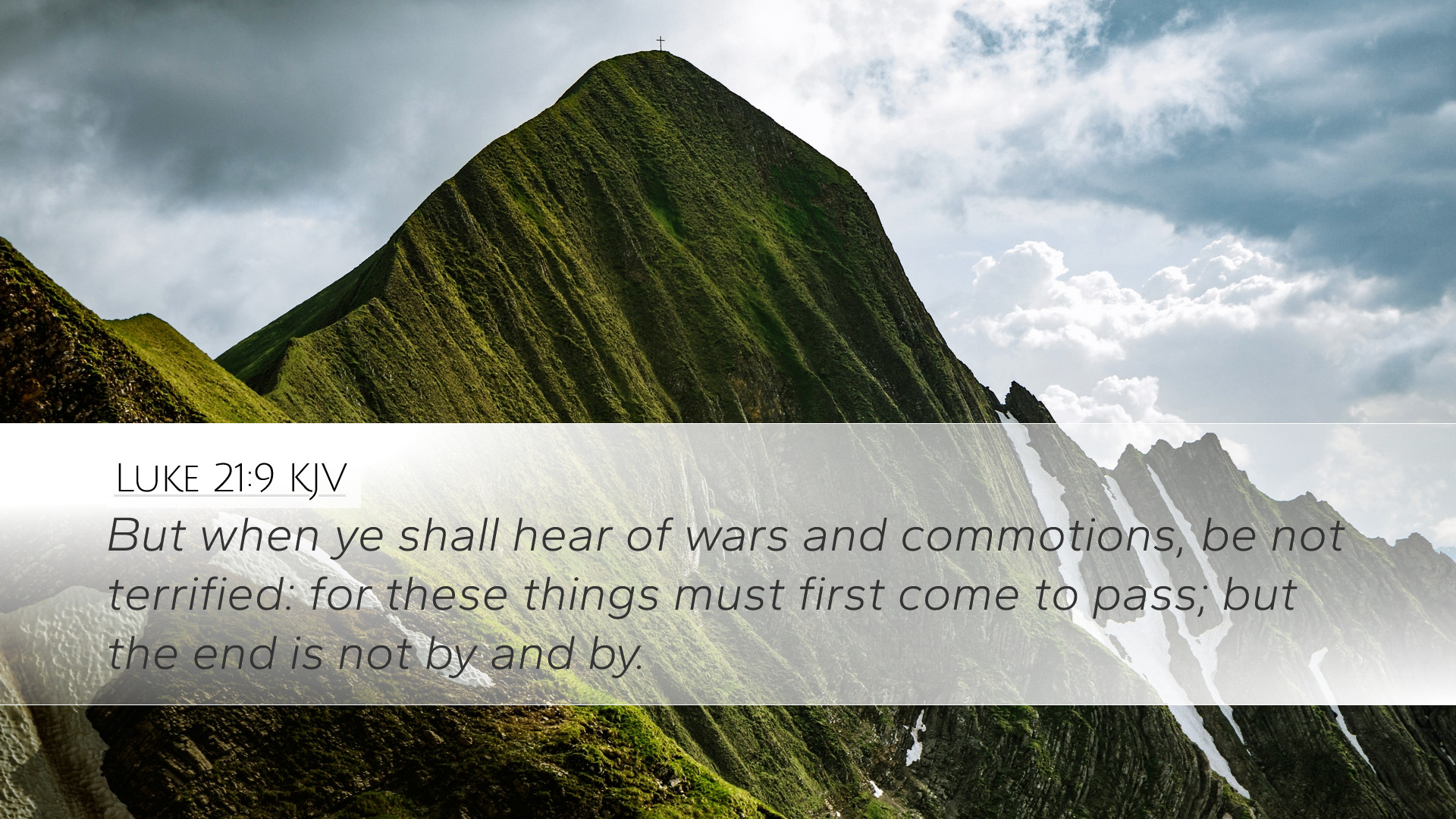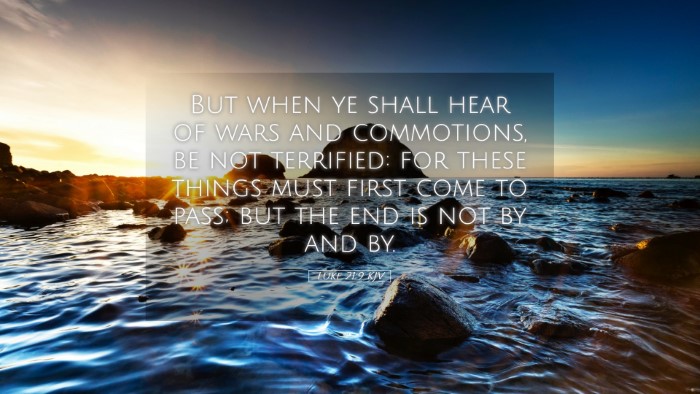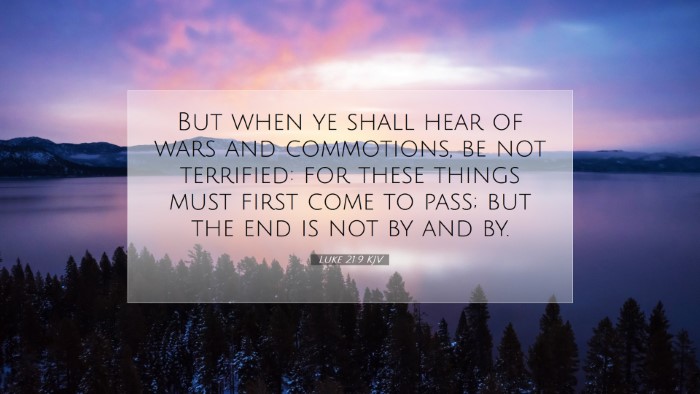Commentary on Luke 21:9
Bible Verse: Luke 21:9 - "But when you hear of wars and tumults, do not be terrified; for these things must first take place, but the end will not be at once."
Introduction
This verse from the Gospel of Luke presents Jesus’ prophetic warning regarding the tumultuous events leading up to the end times. As believers, understanding this passage is crucial for grounding our faith amidst chaos and uncertainty.
Contextual Background
Luke 21 is a chapter that deals with the signs of the end of the age. Jesus speaks to His disciples about the destruction of the Temple and the trials that will precede His return. Luke’s Gospel often emphasizes themes of vigilance, faithfulness, and the need for preparation in light of Christ's return.
Verse Analysis
The verse can be divided into several parts for deeper understanding:
- “But when you hear of wars and tumults”: This phrase signals to the disciples that they will witness societal upheavals.
- “do not be terrified”: A command from Jesus, suggesting that fear is a natural response but one that believers are to resist.
- “these things must first take place”: This acknowledges that turmoil is part of God’s plan, necessary for the fulfillment of prophecy.
- “but the end will not be at once”: Emphasizes that immediate events are not the final end, but part of a prolonged process.
Theological Insights
This verse offers vital theological implications for both the church and the individual believer:
- Providence in Distress: The phrase “these things must first take place” (as noted by Albert Barnes) reminds us that God orchestrates history according to His divine plan, even amid conflict.
- The Antidote to Fear: Jesus’ command not to be terrified reveals the heart of God, which desires His followers to be confident in His sovereignty.
- Importance of Discernment: Recognizing the difference between current events and the actual "end" is vital for faith and perseverance. Adam Clarke elaborates on the need for spiritual discernment in understanding the times.
Commentary from Matthew Henry
Matthew Henry emphasizes the inevitability of conflicts and turmoil in the world, attributing these occurrences as necessary fulfillments of God's prophecies. He advises believers to maintain their composure and trust in God’s overarching authority, which does not waver regardless of earthly disturbances. Henry suggests that acknowledging these events as part of God's divine timeline brings a sense of peace and assurance to believers.
Commentary from Albert Barnes
Albert Barnes provides a detailed interpretation by contextualizing the verse within the framework of first-century Israel. He points out that the disciples would witness considerable deception and conflict, yet they are to stand firm in their faith. Barnes also highlights the assurance found in Jesus’ prediction that these events will not signal the immediate end; instead, they are precursors that should compel vigilance rather than panic.
Commentary from Adam Clarke
Adam Clarke's commentary sheds light on the nature of the conflicts referenced in this verse, suggesting that they are part of a larger cosmic struggle between good and evil. Clarke calls attention to the importance of understanding prophecy and its unfolding, encouraging believers to remain steadfast and vigilant as witnesses to the unfolding of God's plan. His insights encourage a proactive approach in faith, illuminating the necessity of preparation for potential trials ahead.
Practical Applications
For pastors and theologians, the implications of Luke 21:9 can be reflected in several applications:
- Encouragement During Trials: Pastors can use this verse to comfort and encourage congregations during times of societal unrest, teaching that such events are foreseen and thus should not lead to despair.
- Promoting a Spirit of Vigilance: This verse serves as a call to be spiritually awake and discerning about the times, which is crucial for both personal faith and ministry.
- Building Resilience: The assurance of God’s control in chaos can foster resilience among believers, prompting an attitude of faithfulness in service and outreach.
Conclusion
Luke 21:9 remains a profound reminder of the tension between fear and faith. As believers, we are called to navigate the tumultuous events of life with a steadfast trust in God’s promises. By embracing this message, we can better prepare ourselves and those we minister to for the challenges ahead while clinging to the hope of Christ’s return.


